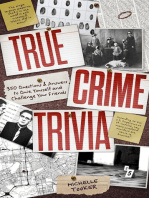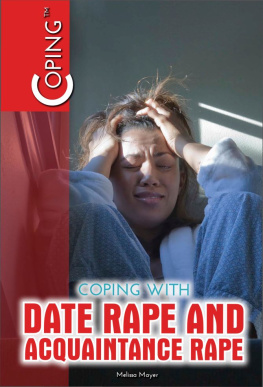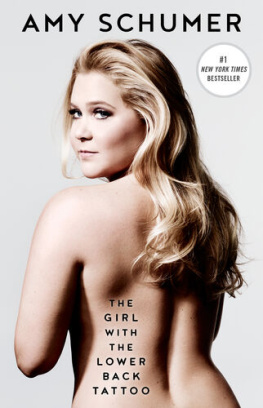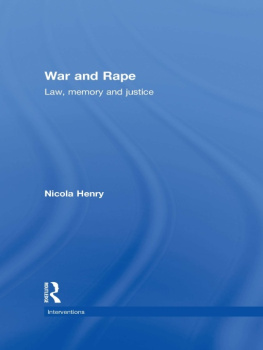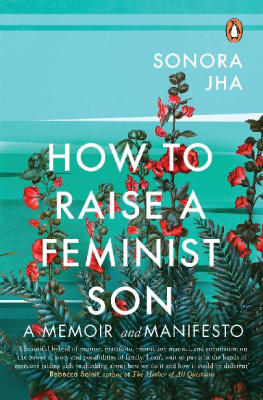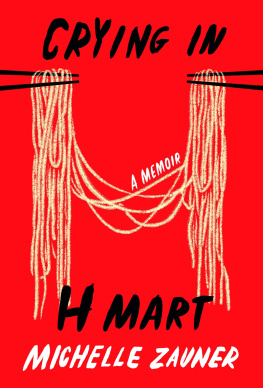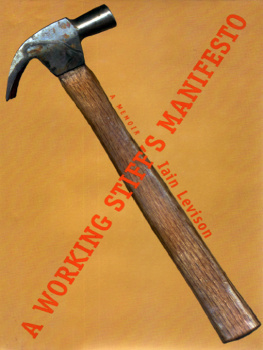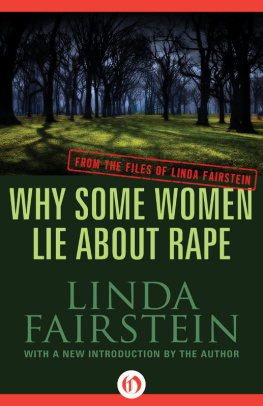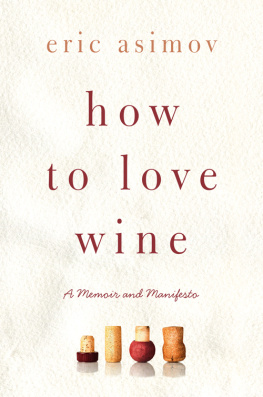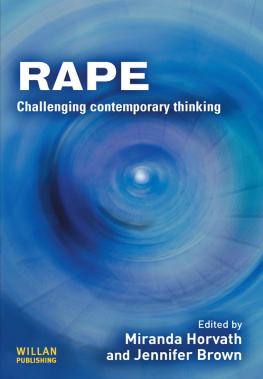Michelle Bowdler - Is Rape a Crime? A Memoir, an Investigation, and a Manifesto
Here you can read online Michelle Bowdler - Is Rape a Crime? A Memoir, an Investigation, and a Manifesto full text of the book (entire story) in english for free. Download pdf and epub, get meaning, cover and reviews about this ebook. year: 2020, publisher: Flatiron Books, genre: Detective and thriller. Description of the work, (preface) as well as reviews are available. Best literature library LitArk.com created for fans of good reading and offers a wide selection of genres:
Romance novel
Science fiction
Adventure
Detective
Science
History
Home and family
Prose
Art
Politics
Computer
Non-fiction
Religion
Business
Children
Humor
Choose a favorite category and find really read worthwhile books. Enjoy immersion in the world of imagination, feel the emotions of the characters or learn something new for yourself, make an fascinating discovery.

- Book:Is Rape a Crime? A Memoir, an Investigation, and a Manifesto
- Author:
- Publisher:Flatiron Books
- Genre:
- Year:2020
- Rating:3 / 5
- Favourites:Add to favourites
- Your mark:
- 60
- 1
- 2
- 3
- 4
- 5
Is Rape a Crime? A Memoir, an Investigation, and a Manifesto: summary, description and annotation
We offer to read an annotation, description, summary or preface (depends on what the author of the book "Is Rape a Crime? A Memoir, an Investigation, and a Manifesto" wrote himself). If you haven't found the necessary information about the book — write in the comments, we will try to find it.
Is Rape a Crime? A Memoir, an Investigation, and a Manifesto — read online for free the complete book (whole text) full work
Below is the text of the book, divided by pages. System saving the place of the last page read, allows you to conveniently read the book "Is Rape a Crime? A Memoir, an Investigation, and a Manifesto" online for free, without having to search again every time where you left off. Put a bookmark, and you can go to the page where you finished reading at any time.
Font size:
Interval:
Bookmark:
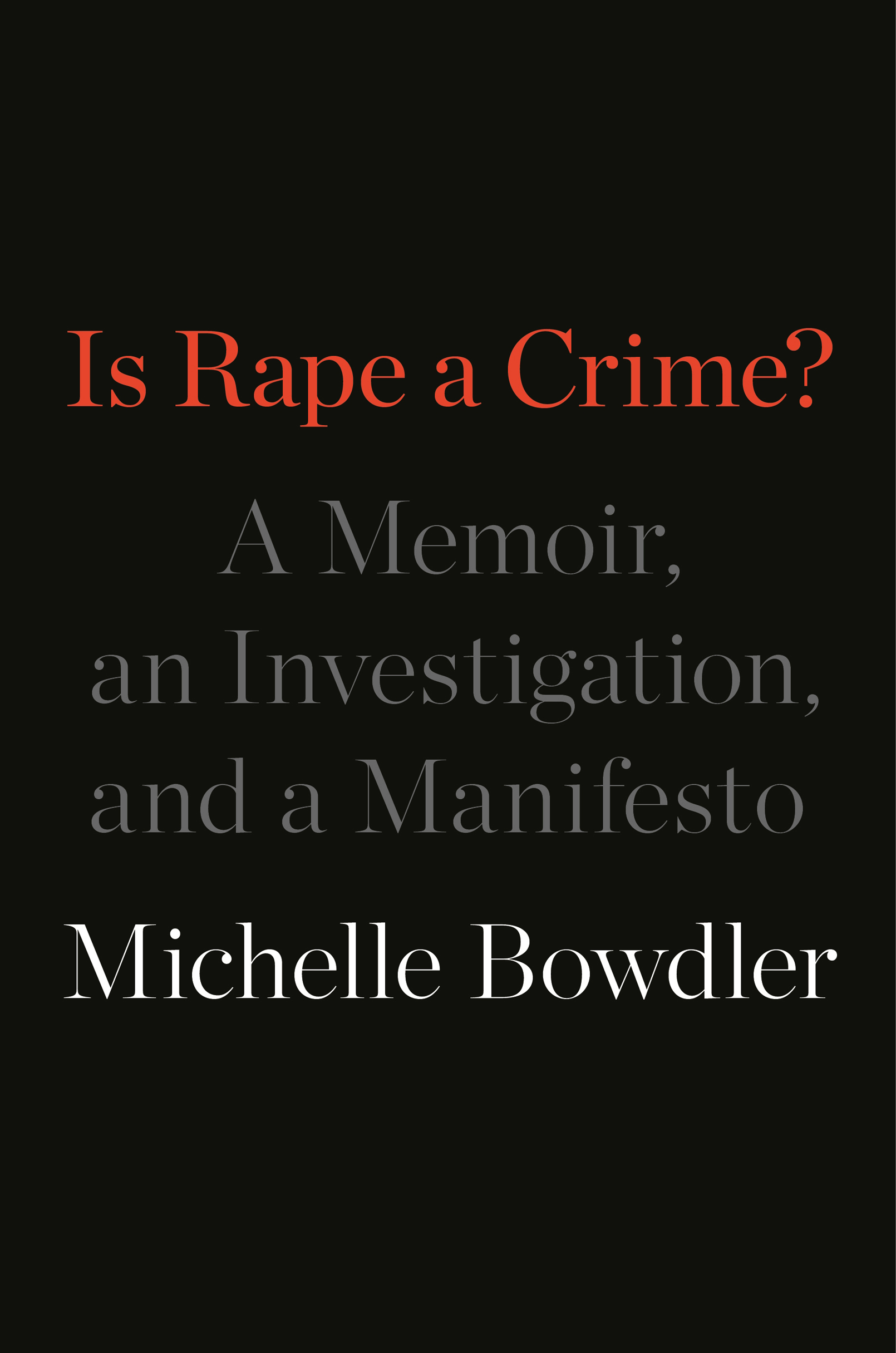
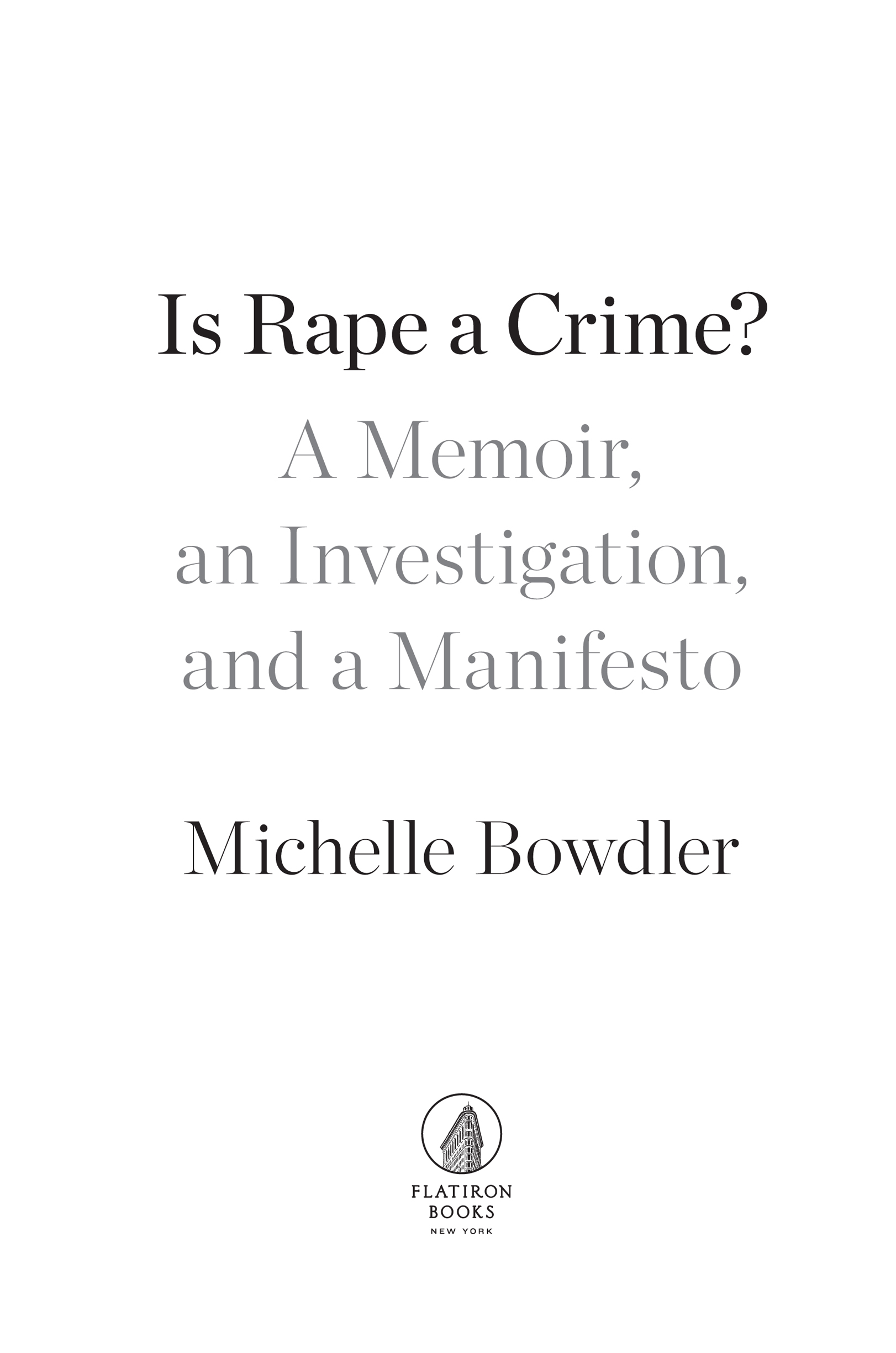
The author and publisher have provided this e-book to you for your personal use only. You may not make this e-book publicly available in any way. Copyright infringement is against the law. If you believe the copy of this e-book you are reading infringes on the authors copyright, please notify the publisher at: us.macmillanusa.com/piracy.
For Mary, Ben, and Becca
The ordinary response to atrocities is to banish them from consciousness. Certain violations of the social compact are too terrible to utter aloud: this is the meaning of the word unspeakable.
Atrocities, however, refuse to be buried. Equally as powerful as the desire to deny atrocities is the conviction that denial does not work. Folk wisdom is filled with ghosts who refuse to rest in their graves until their stories are told. Murder will out. Remembering and telling the truth about terrible events are prerequisites both for the restoration of the social order and for the healing of individual victims.
JUDITH LEWIS HERMAN, T RAUMA AND R ECOVERY
Hope is the thing with feathers
That perches in the soul
EMILY DICKINSON
Is rape a crime? Its a startling question. Most people would answer emphatically, Of course it is. They might even add, What kind of a question is that? This question, though, is a fair one to explore given how rape is treated in our country and around the worldunderinvestigated, trivialized, and excused. Is anything else enacted as an international weapon of war and referred to for a sure laugh at a comedy club? Rape in the United States is a felony, in theory, but evidence of rape is largely ignored and victims are expected to prove their veracity. This reluctance from law enforcement to use its valuable resources does not seem to extend to other feloniesthe kind where evidence is tested and witnesses interviewed, the kind DAs prosecute readily, the kind where arrest and conviction are more than a remote possibility. We are left with a central contradiction here: most people, when asked, will agree that rape is one of the most horrific violations that can happen to a human being, yet somehow society appears to stand aside while crimes of rape are minimized or dismissed, if they are reported at all, if they are investigated at all.
The crime of rape sizzles like a lightning strike. It pounces, flattens, and devastates its victims. A person stands whole, and in a moment of unexpected violence, that life, that body, is gone. If the eviscerated individual somehow rises, incredulous bystanders shout with relief, Theyre alive! They are a survivor! not realizing the victims organs are incinerated, her brain runny scrambled egg.
And what of those internal scars? Does time allow regeneration? Can medical care fully repair the bodily damage the lightning bolt so violently imprinted? Since the injuries are largely unseen by others, how does the victim carry on? How are the scars attended to and softened rather than made hard and immovable?
To answer those questions, to really answer them and not turn away, we need to consider the role we play in dismissing the experiences of victims of sexual violence. This collusion by omission occurs, in large measure, to protect our own vulnerability. The challenge of confronting a power structure so entrenched that its full impact is unseen lies in the insidiousness of our need to look away. What we accept as a normal response to sexual violence is anything but. We must make space for each individual story, creating a larger mosaic of what has emerged as an all-too-common experience: the delegitimization of rape as a crime. Only then can we begin to change how rape is addressed in our society.
This is a difficult task I ask of youto look at these violent crimes full-on and listen as I tell my story and what it implies about a collective disregard for victims of sex crimes. But I hope you will listen, and I hope you will consider engaging in a shared and urgent task: to both recognize and raise awareness about the many ways rape is treated differently from all other felonies and to demand change. Our collective efforts are needed in this essential task and the work cannot be done in isolation.
The term rape culture was introduced by second-wave feminists in the mid-1970s to describe how pervasive and normative violence against women was in the United States. In contexts where rape was perceived as affecting men by proxy, it was often addressed with more gravity than it is now.
The me too movement, which was founded by activist Tarana Burke and spurred the subsequent viral hashtag, ushered in a wave of news about sexual assault, harassment, and abuse of power. These stories were followed by weak apologies and promises to get help from the perpetrators but few repercussions. It is commonplace that men, famous or not, experience no consequences for these behaviors, whereas those alleging harm pay a much steeper price.
Just ask the forty-fifth president of the United States.
In this book I present my story alongside research on the criminal justice systems treatment of rape in the United States to argue for the importance of acknowledging and treating rape like the felony crime it is. I assert that rape does not hold status as a crime largely because the victims are overwhelmingly women, children, and persons from marginalized populations. One in six U.S. women and one in thirty-three men will experience rape or attempted rape in their lifetime.
Race and racism have shaped the U.S. response to crimes of rape over the centuries. In this country, it was legally impossible for a white man to rape an enslaved black woman because the act was not a crime.
I am not advocating for more incarceration and longer prison sentences in a country that already has the highest incarceration rates in the world. But it is clear to me as a long-term survivor of rape that there is a striking disproportion between the severity of the crimes lifelong consequences for survivors and the seriousness with which it is treated by society and, specifically, by the criminal justice system. It is this disparity I question.
Data from this current decade shows that close to 25 percent of all rapes were reported compared to over 60 percent of robberies and assault and battery crimes. Rape victims still are routinely discounted, and our pleasfirst for the rapist to stop and then for law enforcement to help us seek justiceare largely ignored.
Studies estimate that between 2 and 8 percent of rape claims are deemed to be either false or baseless. This classification system should give us all pause, as it stands in stark contrast to the data showing low rates of false reporting. Are there other crimes where the first question asked is whether the victim is being truthful, and where there is no ensuing investigation to determine if that presumption can be backed up with facts?
If you have ever had a rape kit done or tried to report a sexual assault formally, you understand it is no ones idea of a good time. Describing in detail sexual humiliation and unimaginable violence is not something a human being would choose to do if they had any other option. And yet the fact that we even have the phrase he said, she said in our vernacularas if its as likely as not that a woman would lie about sexual violationis itself instructive about the status of this crime in our society.
Font size:
Interval:
Bookmark:
Similar books «Is Rape a Crime? A Memoir, an Investigation, and a Manifesto»
Look at similar books to Is Rape a Crime? A Memoir, an Investigation, and a Manifesto. We have selected literature similar in name and meaning in the hope of providing readers with more options to find new, interesting, not yet read works.
Discussion, reviews of the book Is Rape a Crime? A Memoir, an Investigation, and a Manifesto and just readers' own opinions. Leave your comments, write what you think about the work, its meaning or the main characters. Specify what exactly you liked and what you didn't like, and why you think so.

